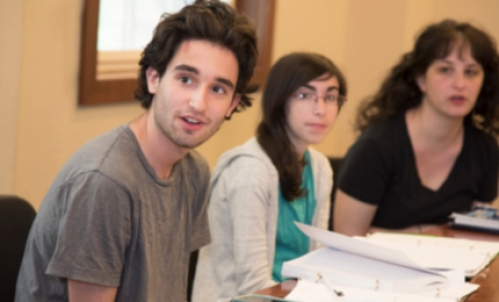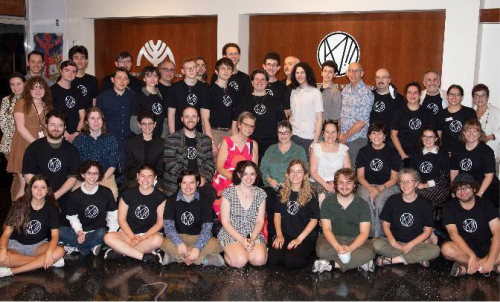The YIVO Sound Archive at 40: A Celebration
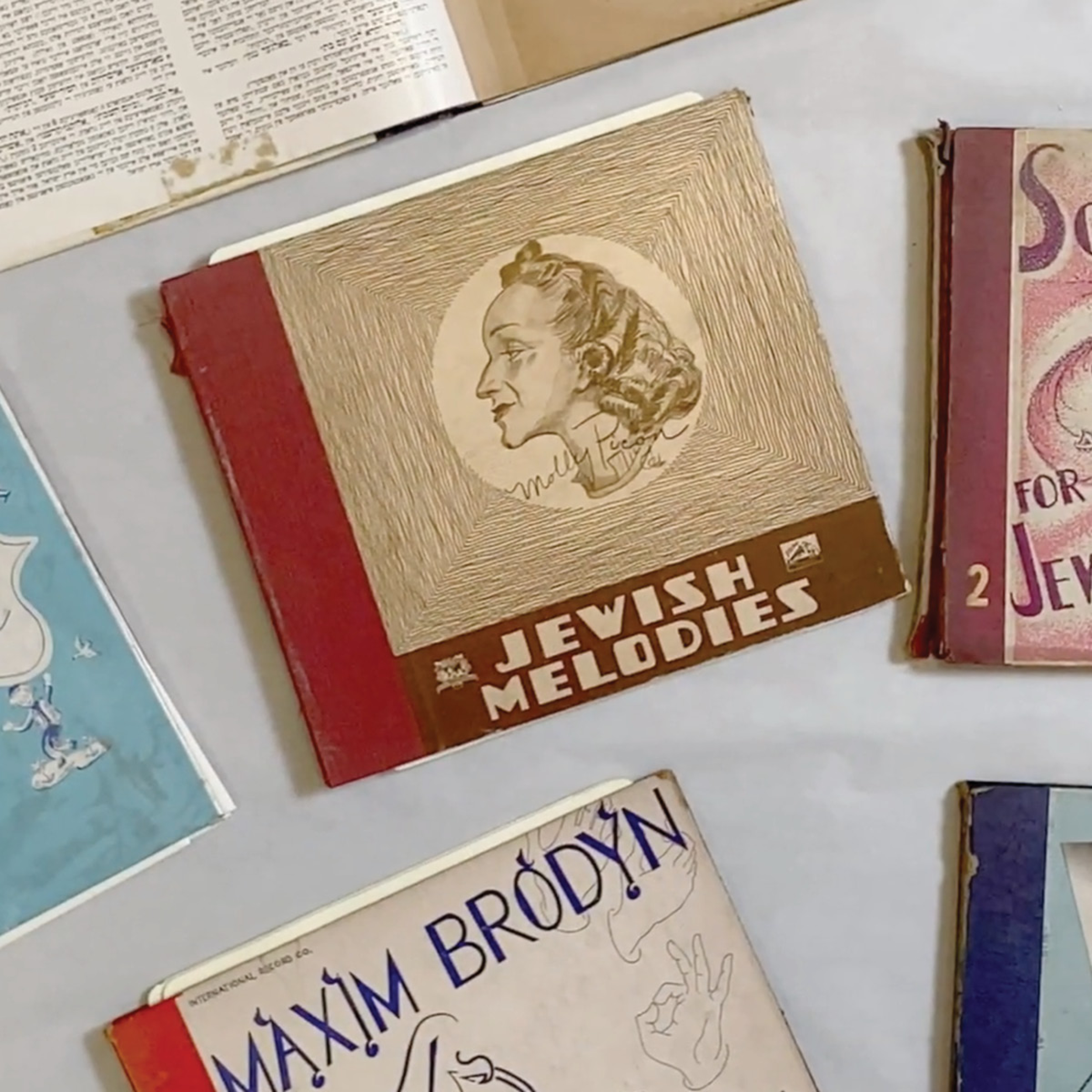
|
Panel Discussion
Co-sponsored by the Klezmer Institute Admission: Free |
The YIVO Sound Archive houses over 20,000 recordings (including 78, 45, and 33rpm discs, open-reel and cassette tapes, piano rolls, and compact discs and other digital formats) as well as various artifacts related to sound recordings. It is is one of the most extensive and frequently consulted Jewish music collections in the world, embracing Yiddish and Hebrew folk, pop and theater music, Holocaust songs, liturgical, choral and instrumental compositions and, of course, klezmer music, as well as spoken word, oral histories, interviews, and radio programs. In addition to serving researchers, the Sound Archive maintains a special link to the Yiddish cultural world, and has close relationships with many musicians who utilize its resources in creating their art. It serves anyone seeking to include Yiddish music in their life or work, including teachers, journalists, camp counselors, and radio producers, among others.
Join us for a fascinating insider discussion of the history of the YIVO Sound Archive, important areas of its collections, projects it has facilitated, and other stories of the past 40 years. Moderated by Hankus Netsky, this event will, for the very first time, bring together the founder of YIVO's Sound Archive, Henry Sapoznik, current YIVO Sound Archivists Lorin Sklamberg and Eléonore Biezunski, and former YIVO Sound Archivist Jenny Romaine.
About the Speakers
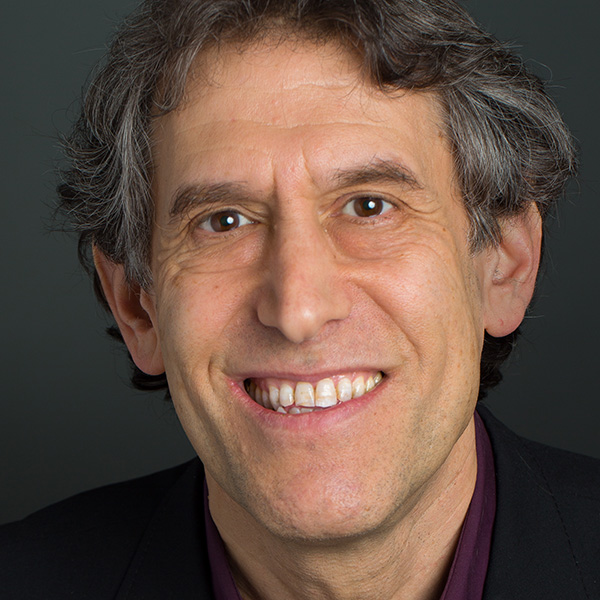
A multi-instrumentalist, composer, and ethnomusicologist, Dr. Hankus Netsky is co-chair of New England Conservatory’s Contemporary Improvisation Department, founder and director of the Klezmer Conservatory Band, an internationally acclaimed Yiddish and Klezmer music ensemble, and former Vice President for Education at the Yiddish Book Center in Amherst, MA. He has composed extensively for film, theater, and television, collaborated closely with Itzhak Perlman, Robin Williams, Joel Grey, Theodore Bikel, Robert Brustein, Eden MacAdam-Somer, Rosalie Gerut, and Robert Pinsky, and produced numerous recordings, including ten by the Klezmer Conservatory Band. He has taught at McGill University, Hampshire College, Wesleyan University, and Hebrew College. His essays on Jewish music have been published by the University of California Press, the University of Pennsylvania Press, Indiana University Press, the University of Scranton Press, Hips Roads, and the University Press of America. Temple University Press published his book “Klezmer, Music and Community in 20th Century Jewish Philadelphia” in 2015.
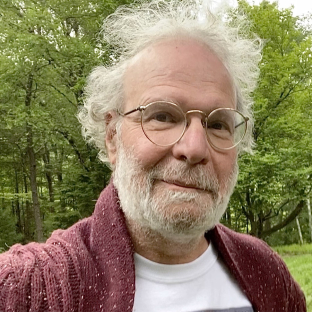
Henry H. Sapoznik is an award winning producer, musicologist and performer and writer in the fields of traditional and popular Yiddish and American music and culture. Sapoznik, a native Yiddish speaker and child of Holocaust survivors, is one of the founders of the klezmer revival, the founder of the YIVO sound archives and a five time Grammy nominated producer and winner of the 2002 Peabody award for his 10 part NPR series “The Yiddish Radio Project.” The collection upon which it was based contains over 10,000 unique items and is housed at the American Folklife Center of the Library of Congress in Washington DC.
Sapoznik’s new book, A Tourist’s Guide to Lost Yiddish New York, is scheduled for a 2023 release by Excelsior Press.
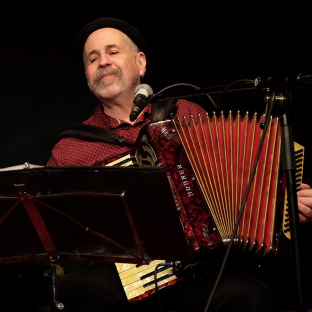
Lorin Sklamberg is a founding member of the Grammy Award-winning Klezmatics, and teaches Yiddish song from São Paulo to Stockholm. His recent projects include a forthcoming recording of newly-discovered Yiddish cabaret songs from Helsinki and 150 Voices, a collaboration with Yiddish-Russian singer/pianist/composer Polina Shepherd and the members of five choirs in the UK and the United States. As YIVO’s longtime Sound Archivist, he co-curates the Ruth Rubin Legacy website and currently presents materials from the newly-digitized YIVO Yiddish Folksong Project worldwide. “One of the premier American singers in any genre.” – Robert Christgau, NPR.
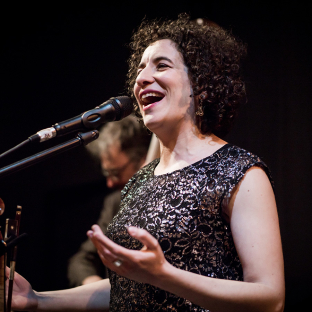
Eléonore Biezunski is an award-winning Parisian singer/violinist/songwriter and scholar now living in NYC. An avid collector of Yiddish music, she has led several projects and has collaborated with a large number of well-known Jewish performers in the US and abroad. Her recordings include Yerushe (IEMJ, 2016) and Zol zayn (2014). Her composition “Tshemodan” was voted Best New Yiddish Song by São Paulo’s 2021 Bubbe Awards. As YIVO’s Sound Archivist since 2016, Eléonore has coordinated the Ruth Rubin Legacy website (ruthrubin.yivo.org). She has a PhD from the École des Hautes Études en Sciences Sociales in Paris and has published several book chapters and articles on the history of Yiddish music and culture, and co-edited a reissue of the complete recordings of the French Elesdisc label, 1948-1953 (2015, IEMJ). She is also a team member of the Klezmer Institute and is a recipient of an NYSCA Folk Arts Apprenticeship. www.eleonorebiezunski.com

Jenny Romaine is a director, designer, puppeteer, and co-founder/artistic director of the OBIE winning Great Small Works visual theater collective. She is music director of Jennifer Miller’s CIRCUS AMOK. Romaine/ Great Small Works performs, teaches, and directs in theaters, schools, parks, libraries, museums, prisons, street corners, and other public spaces, producing work on many scales, from gigantic outdoor spectacles with scores of participants, to miniature shows in living rooms. Jenny was a sound archivist at the YIVO Institute for Jewish Research for 13 years and for several decades has drawn on Yiddish/Pan Jewish primary source materials to create art that has contemporary meaning. Her Great Small Works projects include Muntergang and Other Cheerful Downfalls about Yiddish puppeteers Zuni Maud and Yosl Cutler, The Sukkos Mob (featured in the film Punk Jews), community Purim Shpiln with the Aftselakhis Spectacle Committee in cahoots with JFREJ, and Vu bistu geven? / Where Have You Been? a Quebec-based adventure parable that asks questions about diasporic Jewish relationships to land.
